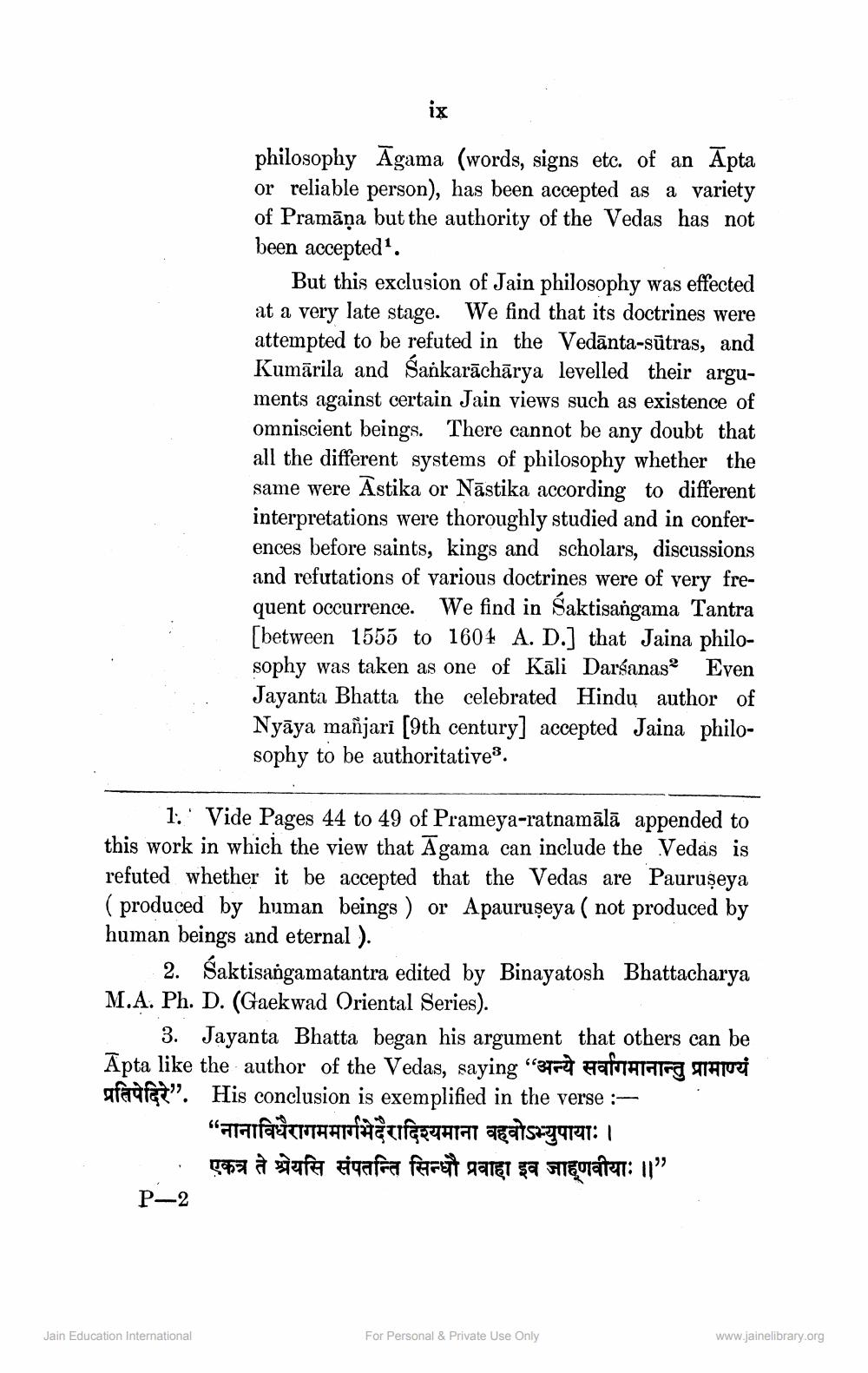________________
philosophy Agama (words, signs etc. of an Apta or reliable person), has been accepted as a variety of Pramāņa but the authority of the Vedas has not been accepted".
But this exclusion of Jain philosophy was effected at a very late stage. We find that its doctrines were attempted to be refuted in the Vedānta-sūtras, and Kumārila and Sankarāchārya levelled their arguments against certain Jain views such as existence of omniscient beings. There cannot be any doubt that all the different systems of philosophy whether the same were Astika or Nāstika according to different interpretations were thoroughly studied and in conferences before saints, kings and scholars, discussions and refutations of various doctrines were of very frequent occurrence. We find in Saktisangama Tantra [between 1555 to 1604 A. D.] that Jaina philosophy was taken as one of Kāli DarśanasEven Jayanta Bhatta the celebrated Hindų author of Nyāya mañjari [9th century] accepted Jaina philosophy to be authoritative3.
1. Vide Pages 44 to 49 of Prameya-ratnamālā appended to this work in which the view that Āgama can include the Vedas is refuted whether it be accepted that the Vedas are Pauruşeya ( produced by human beings ) or Apaurușeya ( not produced by human beings and eternal ).
2. Śaktisangamatantra edited by Binayatosh Bhattacharya M.A. Ph. D. (Gaekwad Oriental Series).
3. Jayanta Bhatta began his argument that others can be Apta like the author of the Vedas, saying "pret Hamaraing naTUS afaaret". His conclusion is exemplified in the verse :
___ नानाविधैरागममार्गभेदैरादिश्यमाना वहवोऽभ्युपायाः । __ . एकत्र ते श्रेयसि संपतन्ति सिन्धौ प्रवाहा इव जाणवीयाः ॥" P-2
Jain Education International
For Personal & Private Use Only
www.jainelibrary.org




